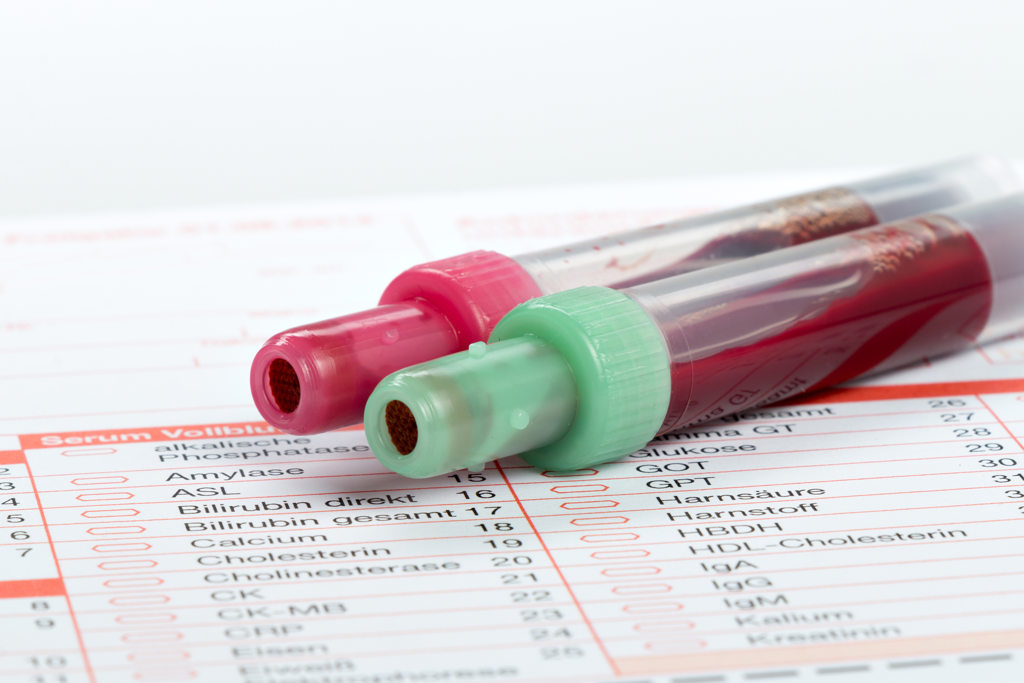What a Simple Blood Panel Can Reveal About Your Health

Blood tests can be an important tool for healthcare providers in diagnosing and treating certain conditions.
“Blood tests measure or examine cells, chemicals, proteins or other substances in the blood,” said Robert J. Usaitis, DO, a family medicine physician at Penn Highlands Family Medicine in DuBois. “They are often a part of routine exams, and they are used to diagnose diseases, monitor chronic conditions, find out if treatment is working, check how well your organs are working, diagnose bleeding or clotting disorders and learn if your immune system is having trouble fighting infections.”
Blood tests can also help you and your doctor keep track of your overall health, allowing you to see how your body is changing over time so that you can make informed decisions about your healthcare.
There are many types of blood tests, and these are among the most common.
Complete blood count
A complete blood test is often included as part of a regular checkup, and it measures the levels of different parts of your blood, including red and white blood cells, platelets and hemoglobin. High or low levels of certain cells can point to certain conditions.
Basic metabolic panel
This is a group of tests that measure certain chemicals in your blood, including blood glucose, calcium and electrolytes, as well as tests that measure kidney function. Basic metabolic panels are generally done on the fluid part of blood, and it can give providers important information about your organs.
Blood enzyme tests
Blood enzyme tests may be used to diagnose a heart attack. Enzymes are substances that control chemical reactions in your body. Some of the most common types of blood enzyme tests are troponin and creatine kinase tests, which test to see if you've had a heart attack or if your heart muscle is damaged. These tests are usually run through Emergency Room blood testing.
Lipoprotein panel
These tests measure the levels of LDL (bad) and HDL (good) cholesterol, as well as triglycerides in your blood. Cholesterol and triglyceride levels that are outside the normal range may mean that a patient is at a higher risk of heart disease.
Coagulation panel
Also known as blood clotting tests, these check proteins in the blood that affect the blood clotting process, and it can show if you have a disorder that causes too much bleeding or too much clotting.
Preparing for a Blood Test
You do not need to do anything special to prepare for most blood tests, because these tests are meant to examine your blood under normal conditions. There are some blood tests, however, where you might need to fast for a certain amount of time prior to the test. Your healthcare provider will let you know if you need to fast before a blood test.
“We generally recommend that individuals get routine blood tests once a year, usually at the same time as your annual exam,” said Dr. Usaitis. “If you are over 40, have a chronic illness or are experiencing unusual symptoms, your doctor may recommend more frequent testing.”
If your physician prescribes blood tests, Penn Highlands Healthcare offers a range of lab services at convenient locations throughout Pennsylvania. Walk-ins are welcome at most locations. Outpatient testing facilities are staffed by certified medical technologists, technicians and phlebotomists. This highly experienced team performs tests that help your provider in identifying, diagnosing and treating health problems and conditions. To learn more, visit www.phhealthcare.org/lab.

